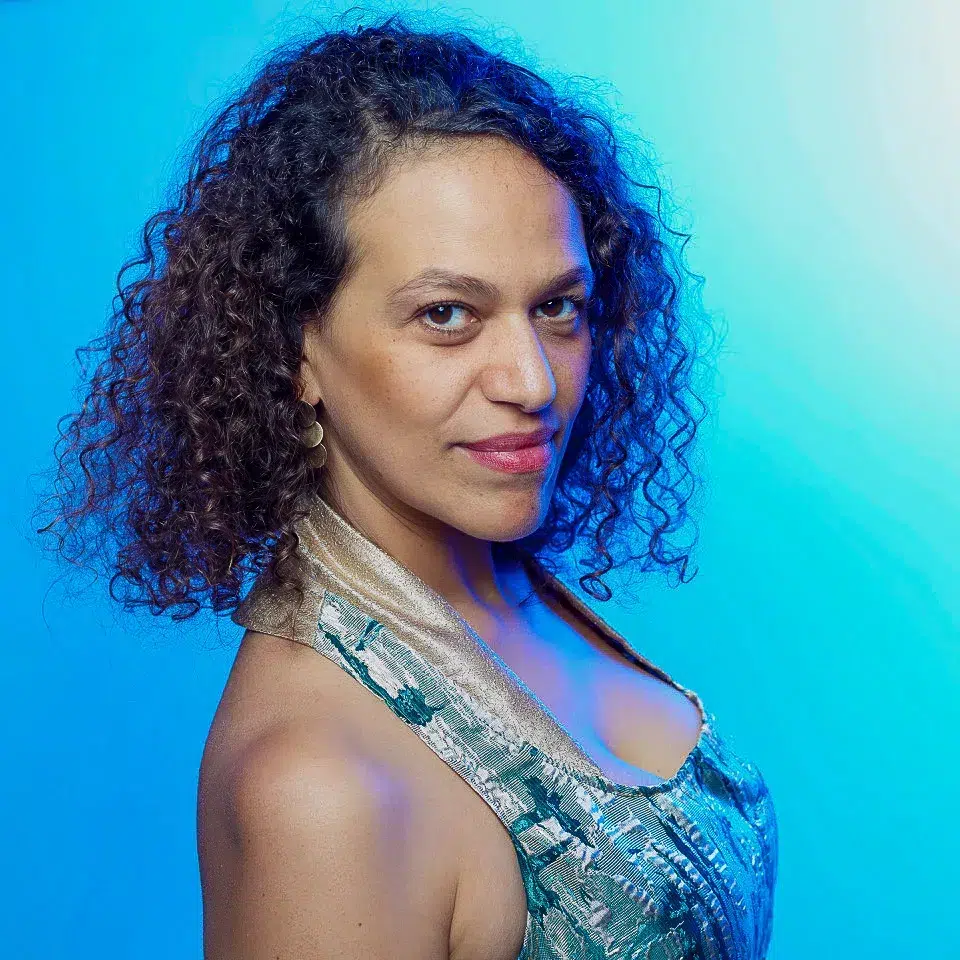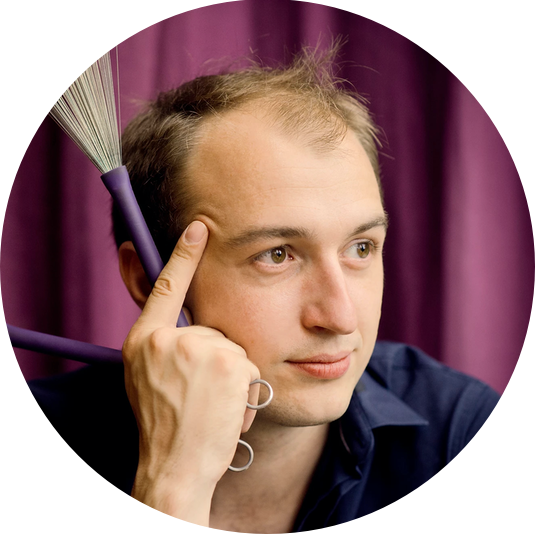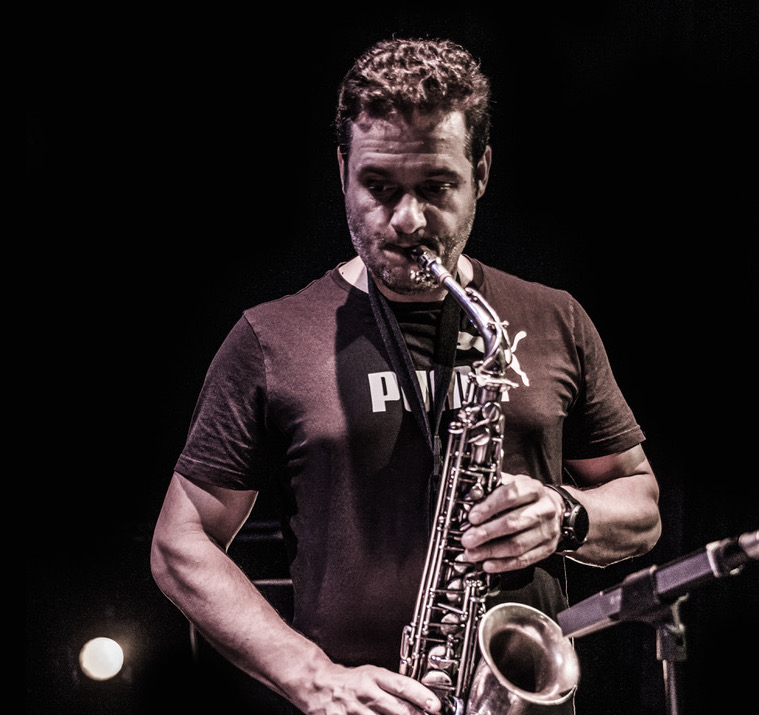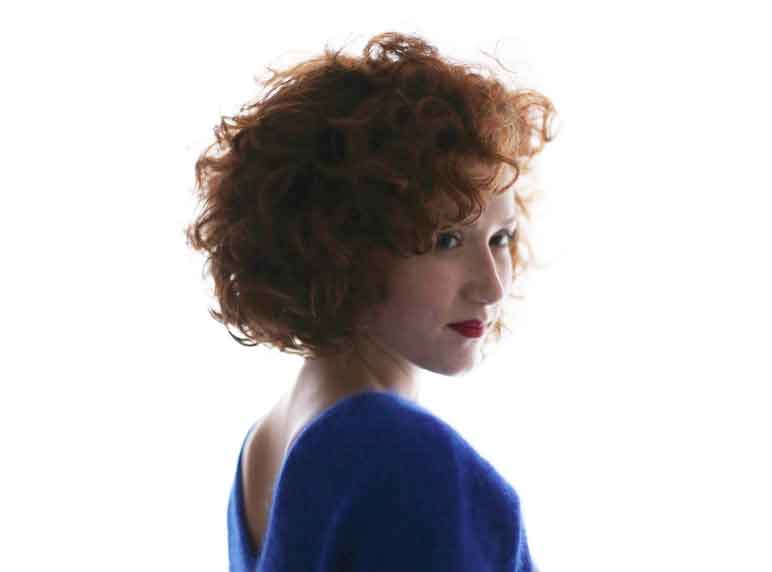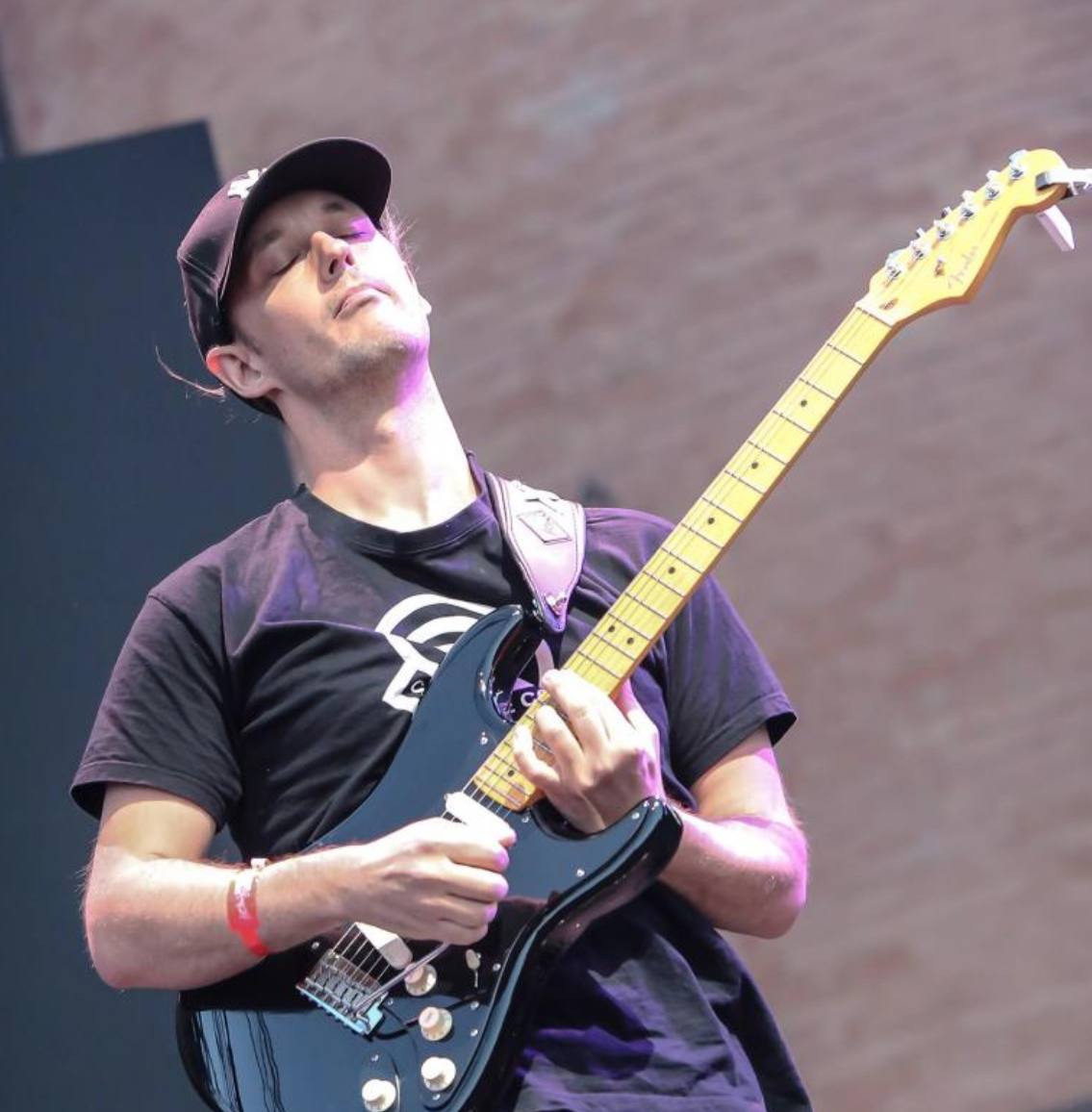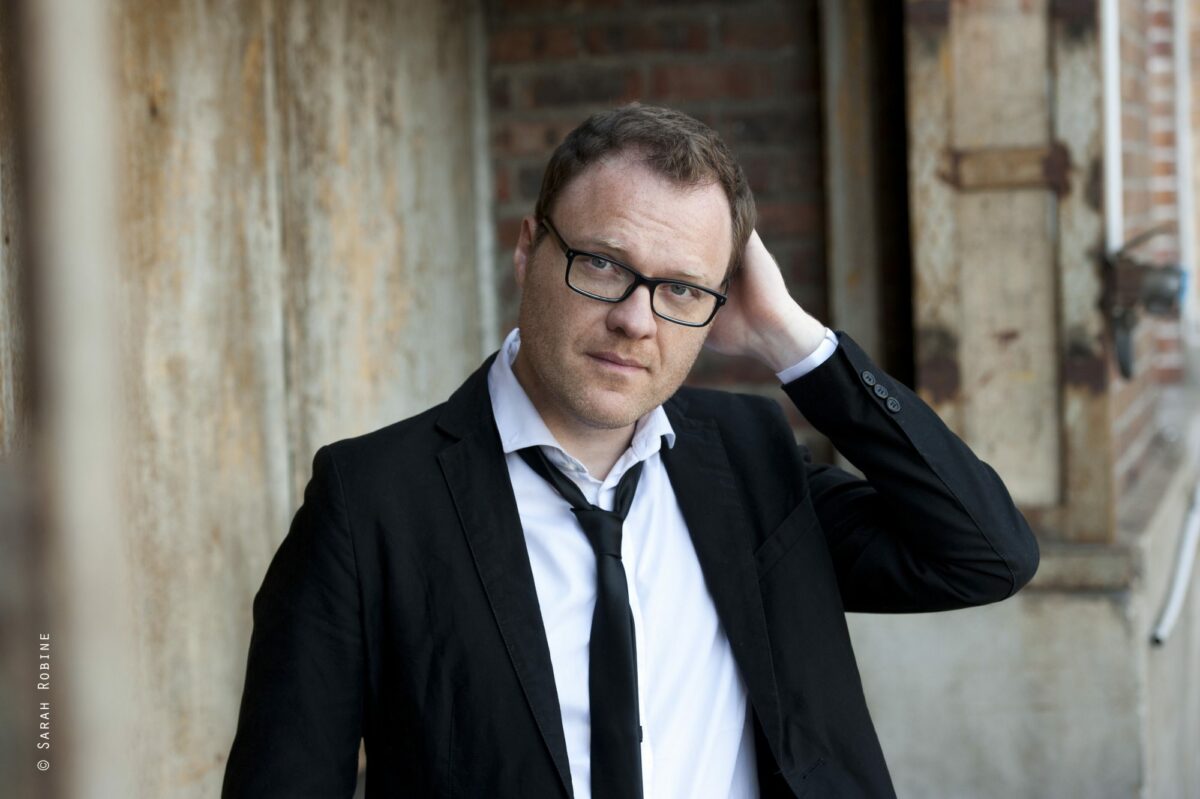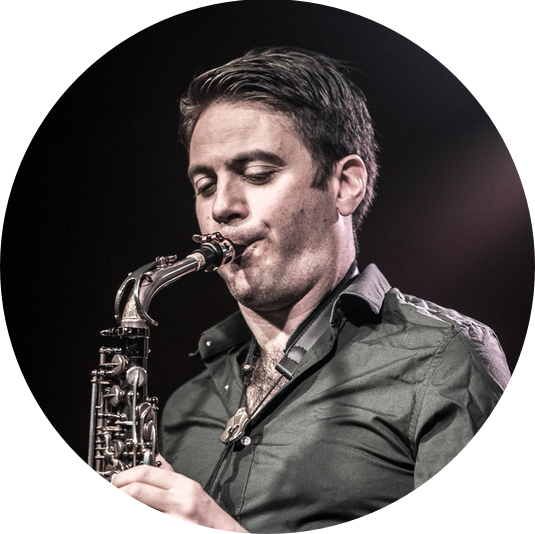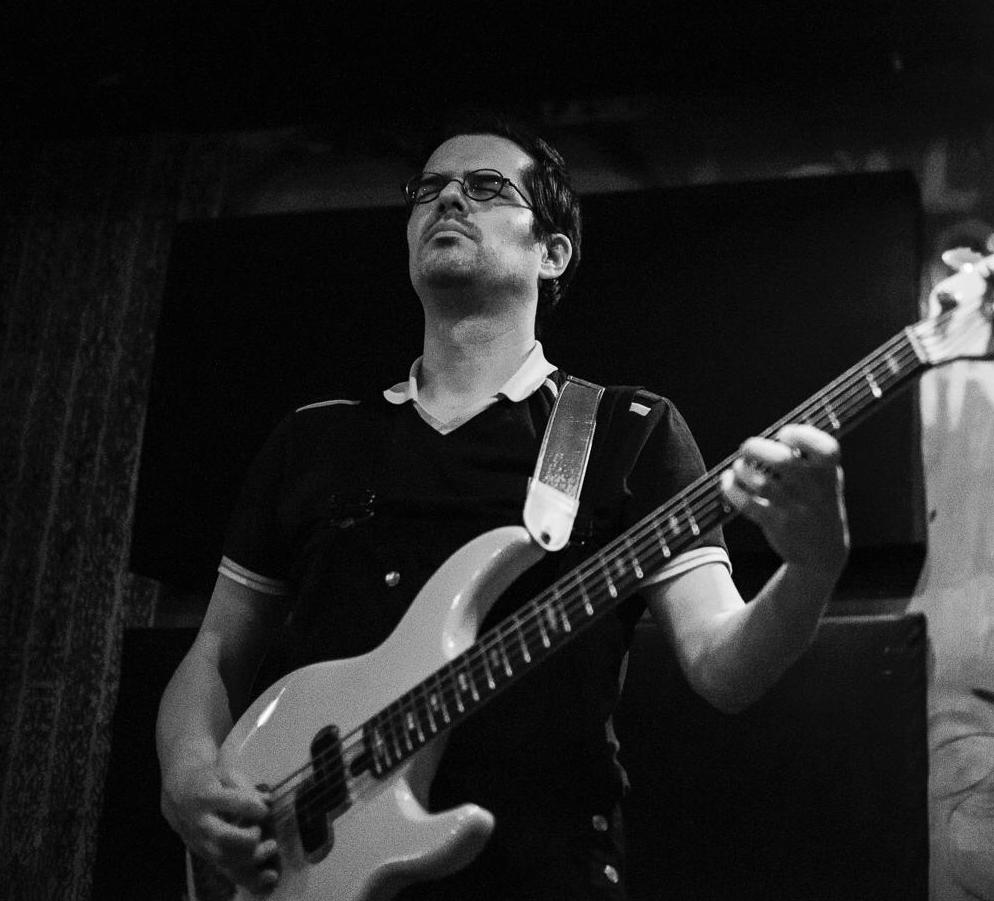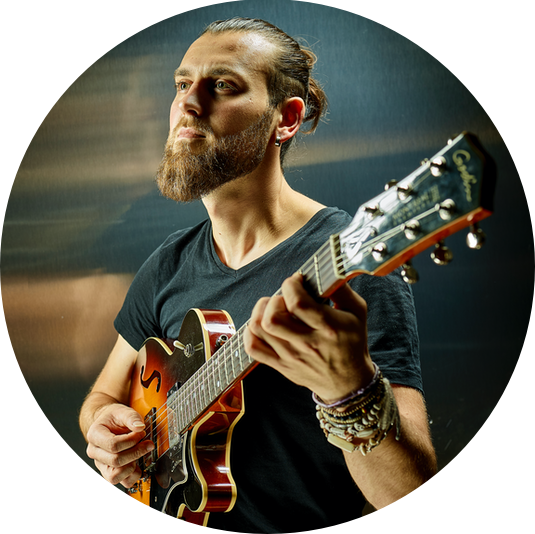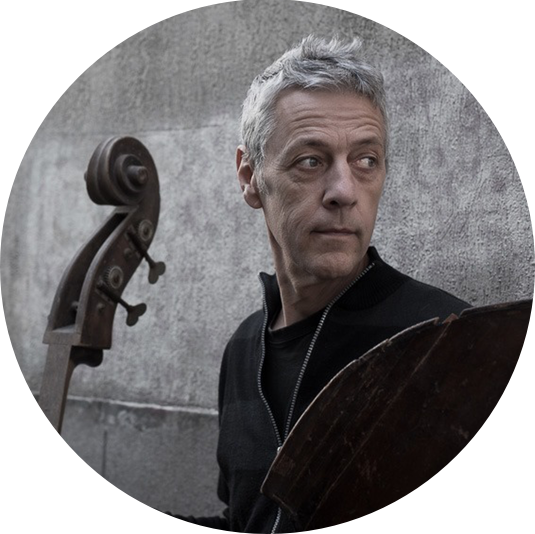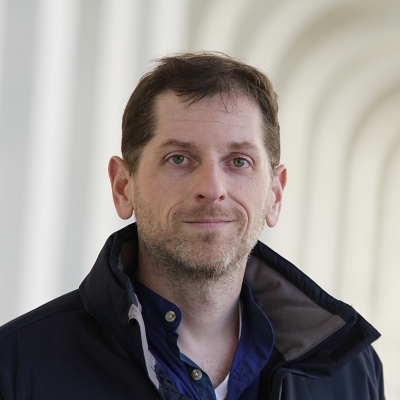Our professional curriculum
The American School of Modern Music has been training professional musicians for over 40 years, offering an alternative to French conservatories. It provides an education inspired by the United States, tailored to contemporary musical genres and the realities of today’s music professions, while maintaining the rigor and high standards that have built its reputation.
The constantly evolving program has two main objectives: to ensure the acquisition of the technical and theoretical skills required by the demands of the profession, and to enable each student to develop their personal artistic project.
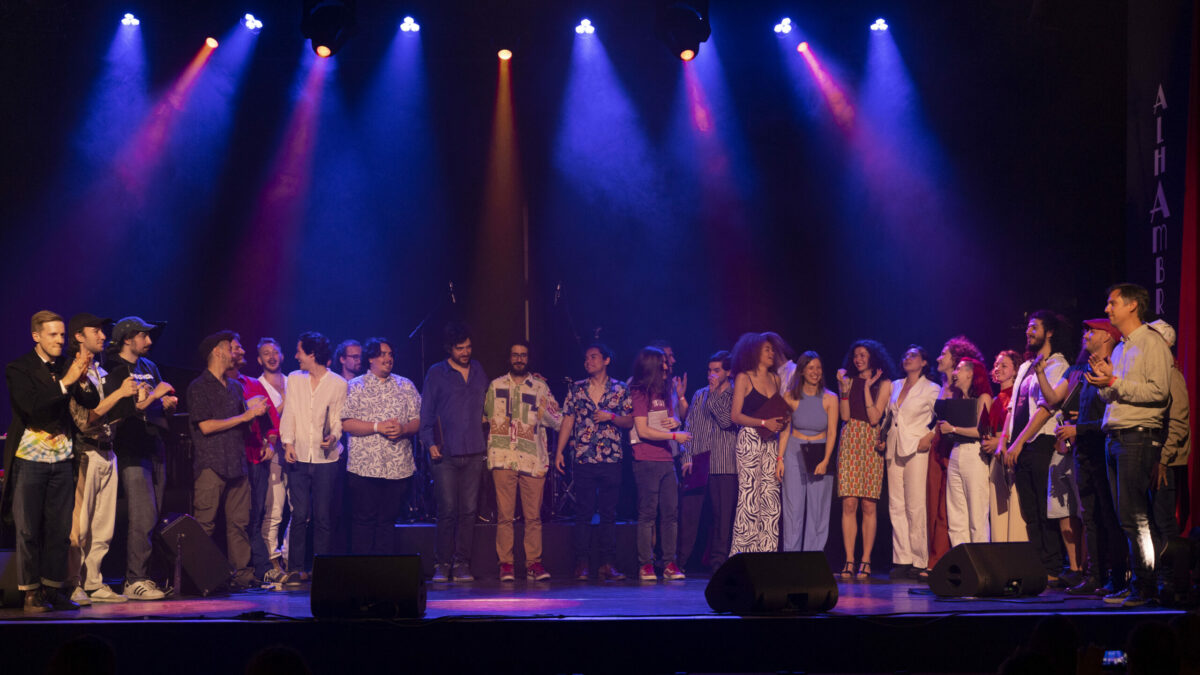
Objectives of the music programs
The professional curriculum trains students in the essential skills needed to meet the demands of today’s musicians, where versatility and autonomy are key to envisioning a long career.
It is not just about performing with a band or participating in television shows but mastering the technical and artistic know-how necessary for a diverse musical career. Students learn to compose music, whether for themselves or others, to produce music using digital tools, to master harmony and arrangement, while developing an excellent musical ear and a high level of instrumental proficiency, enabling them to perform in concerts or accompany other artists. Music Business skills are also included in the program to help students manage their careers and adapt to a constantly evolving professional environment.
At the same time, the curriculum places strong emphasis on the personal artistic development of each student. Each student is supported in structuring their own musical project, which is a key component of the training. This process culminates in the production of an original EP for each student, reflecting their artistic identity, along with a distribution strategy and concerts performed under professional conditions (large venues, recordings, etc.).
This dual objective – acquiring skills and developing a personal artistic project – ensures a comprehensive education tailored to the realities of a musician’s profession.
- General music writing, formatting scores, music theory, chord charts, transposing instruments, scoring, … (Harmony Course)
- Production/DAW encompassing all uses of computers as tools associated with the music creation process (notation software, production tools, editing tools, mixing techniques, film scoring techniques, …) from composition to the dissemination of works (DAW Course).
- Mastering harmony, understanding and hearing the harmonic principles of music necessary for composition, arrangement , and improvisation (Harmony/Arrangement Course).
- Listening, transcribing music, and acquiring rhythm expertise through the Ear-Training / Rhythm courses offered over the 4 years of the program.
- Achieving a high level of instrumental proficiency through rigorous instruction in all instruments taught at the school (Instrument Courses).
- Learning to accompany and perform in concerts: a skill developed through ensemble classes, jam sessions, concerts, and studio practice.
- Music Business taught by various specialists in their fields through Masterclasses (networking, entrepreneurship, grants, career management, music rights, …).
Exams will take place at the end of each term to assess students’ proficiency in each subject. Students must pass all modules/classes by achieving the required average for each of them.
The diploma from the American School of Modern Music, renowned in France and abroad, is awarded each year to students who have successfully completed the professional curriculum and validated their 19 mandatory modules (Harmony, Ear-Training, Composition, DAW, Instrument, Arrangement, …). The diploma is presented during a ceremony presided over by the director and the teaching staff. The diploma from the American School of Modern Music certifies a solid and comprehensive musical education, aligned with the demands of today’s professional environment.
The school also offers students the opportunity to obtain the IOMA certification (Interpreting a Work of Contemporary Music) and the AMMA title (Contemporary Music Artist), both of which are state-recognized.
The program
The number of hours indicated in the schedules does not reflect the actual work and time investment required at the school, which are much greater. In addition to classes, students will be required to:
• Prepare for the school’s concerts by rehearsing with their ensembles.
• Participate in the weekly jam sessions.
• Work on the weekly assignments for each subject.
• Take part in sessions with other students.
• Play in other students’ projects.
• Accompany during classes.
• Create projects, prepare for their professional project, and develop their network.
The American School of Modern Music offers a total of 51 different courses/modules.
First Year
Learning the basics of harmony, key writing techniques, analysis, and harmonization, which will be used for composition and arrangement, among other things.
Course duration: 2 hours
Instrument classes are taught in small groups.
Course duration: 2 to 3 hours depending on the number of students and the type of instrument.
*Singing students have a repertoire and vocal technique class.
Each student at the school is assigned an ensemble for the year with which they will perform live in a Parisian club. Focus on group performance, improvisation, and repertoire in various styles.
Course duration: 2 hours
Introduction to production, mixing, sound design, and an overview of the main DAW (Digital Audio Workstation) software for mixing and live music.
Each term includes individual or team project submissions.
Course duration: 1 hour
Introduction to sung solfège, rhythm, ear development, sight-reading, and music transcription techniques, including recognition of intervals, chords, and harmonic progressions.
Course duration: 2 hours
Each student must perform in front of a jury at the end of the year. They will be evaluated on their knowledge of the school’s repertoire and their instrumental progress.
Class reserved for singing students.
The vocal repertoire class involves in-depth learning, interpretation, and vocal improvisation on pieces in various styles.
Course duration: 2 hours
Class reserved for singing curriculum students.
At the heart of the school and student interactions, students are encouraged to participate in the many Jam Sessions organized by the school every week.
The jams take place in various formats, including public sessions at Sunset as well as other public venues. Additionally, there are private sessions in a more educational format within the school.
Throughout the year, masterclasses (optional) will be organized with prominent figures from the music world. * (Although generally free for school students, some may require an exceptional financial contribution).
From the first year, students are encouraged to perform at the school’s concerts several times throughout the academic year.
Second Year
In-depth harmonic learning, harmonization techniques, reharmonization, and voice leading development.
Arrangement techniques and writing for multiple voices (2 to 4 voices). Study of different styles and writing for various orchestrations.
Course duration: 2 hours
Instrument classes are taught in small groups.
Course duration: 2 to 3 hours depending on the number of students and the type of instrument.
*Singing students have a repertoire and stage coaching class.
Each student at the school is assigned an ensemble for the year with which they will perform live in a Parisian club. Focus on group playing, improvisation, and repertoire in different styles.
Course duration: 2 hours
Modular training per term:
Introduction to composing music for film, video games, working with live music tools, using loops and controllers.
Beat making and groove editing: using the main tools to support the production of professional productions.
Course duration: 1 hour
Advanced study of sight-singing, rhythm, transcriptions, recognition of 4-note chords and beyond, harmonic dictation, polyphonic singing.
Course duration: 2 hours
Each student must perform in front of a jury at the end of the year. They will be evaluated on their knowledge of the school’s repertoire and their instrumental progress.
Class reserved for singing students.
The vocal repertoire class involves in-depth learning, interpretation, and vocal improvisation on pieces in various styles.
Course duration: 2 hours
Class reserved for singing curriculum students
Although not mandatory, students are encouraged to regularly participate in the many Jam Sessions organized by the school, which allows teachers to closely monitor and track students’ progress.
Throughout the year, masterclasses (optional) will be organized with prominent figures from the music world. * (Although generally free for school students, some may require an exceptional financial contribution).
Starting from the preparatory year, students are encouraged to perform at the school’s concerts several times throughout the academic year.
Third Year
Advanced harmonization and arrangement techniques.
Course duration: 2 hours
Group classes with reduced numbers * some specific instruments require a lesson with a private instructor or in a small group. Course duration: 1 to 2 hours depending on the number of students and the type of instrument. *Singing students have a repertoire and stage coaching class.
Advanced ensemble classes in various musical styles, supervised by a school instructor. The ensembles will represent the school in the largest Parisian clubs.
Course duration: 2 hours
Work on atonal sight-reading, polyrhythms, recognition of advanced chord shapes (5 or 6 notes), transcriptions, and work on rhythm, “time feel,” and forms with Guillaume Estace and Raphael Pannier.
Course duration: 2 hours
Work on composition, development of students’ artistic projects, and their final project (Album/EP).
Course duration: 2 hours
Course in the Singer-Showcase format, where singing students are encouraged to perform precise and personal pieces, supported by carefully crafted arrangements accordingly.
Starting from the preparatory year, students are encouraged to perform at the school’s concerts several times throughout the academic year.
Students are encouraged to regularly participate in the many Jam Sessions organized by the school, which allows teachers to closely monitor and track the students’ progress.
Throughout the year, masterclasses (optional) will be organized with prominent figures from the music world. * (Although generally free for school students, some may require an exceptional financial contribution).
Preparation for an end-of-year concert in a large Parisian venue.
The final project will be the creation of an EP, composed of several tracks produced and recorded in collaboration with the students and teachers of the school, and realized at a professional level. The EP will showcase the knowledge gained throughout the program and serve as a platform for the graduating students to launch their professional projects.
Modular courses
Students are placed in the appropriate courses and levels after their audition. It is common for a student in the professional track to be placed in different courses depending on their knowledge in each subject (for example, preparatory year in sight-reading and first year in harmony).
